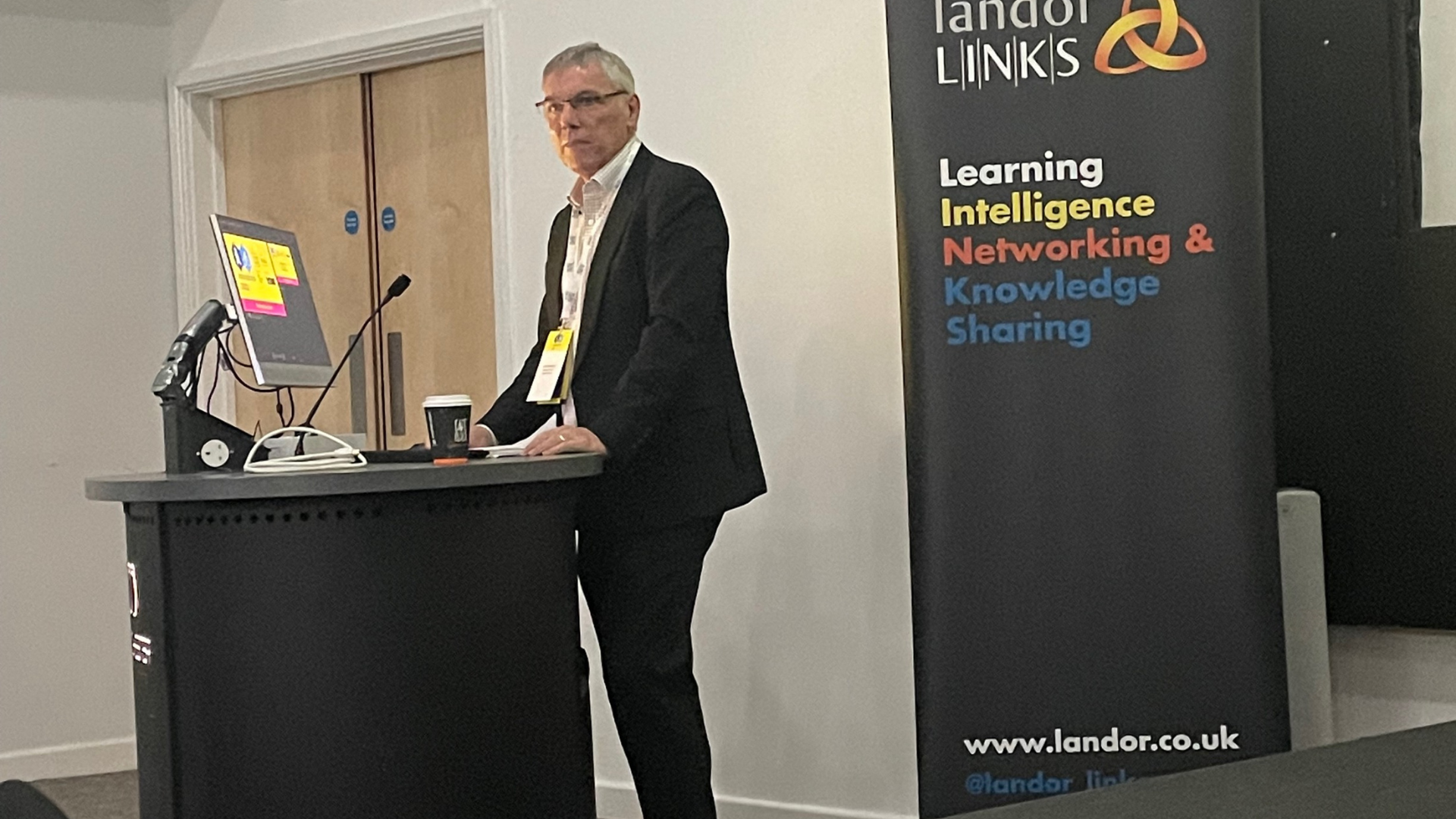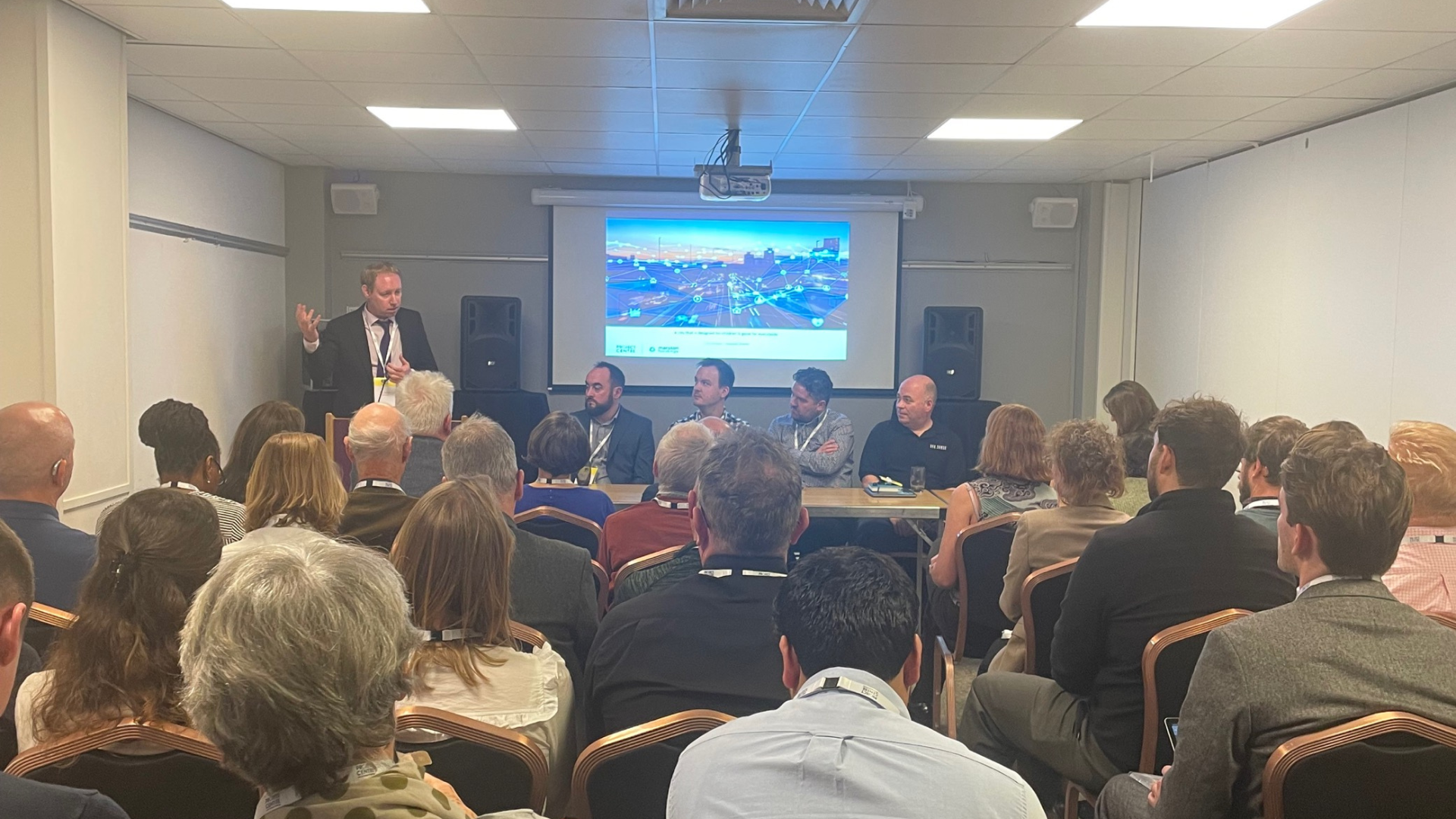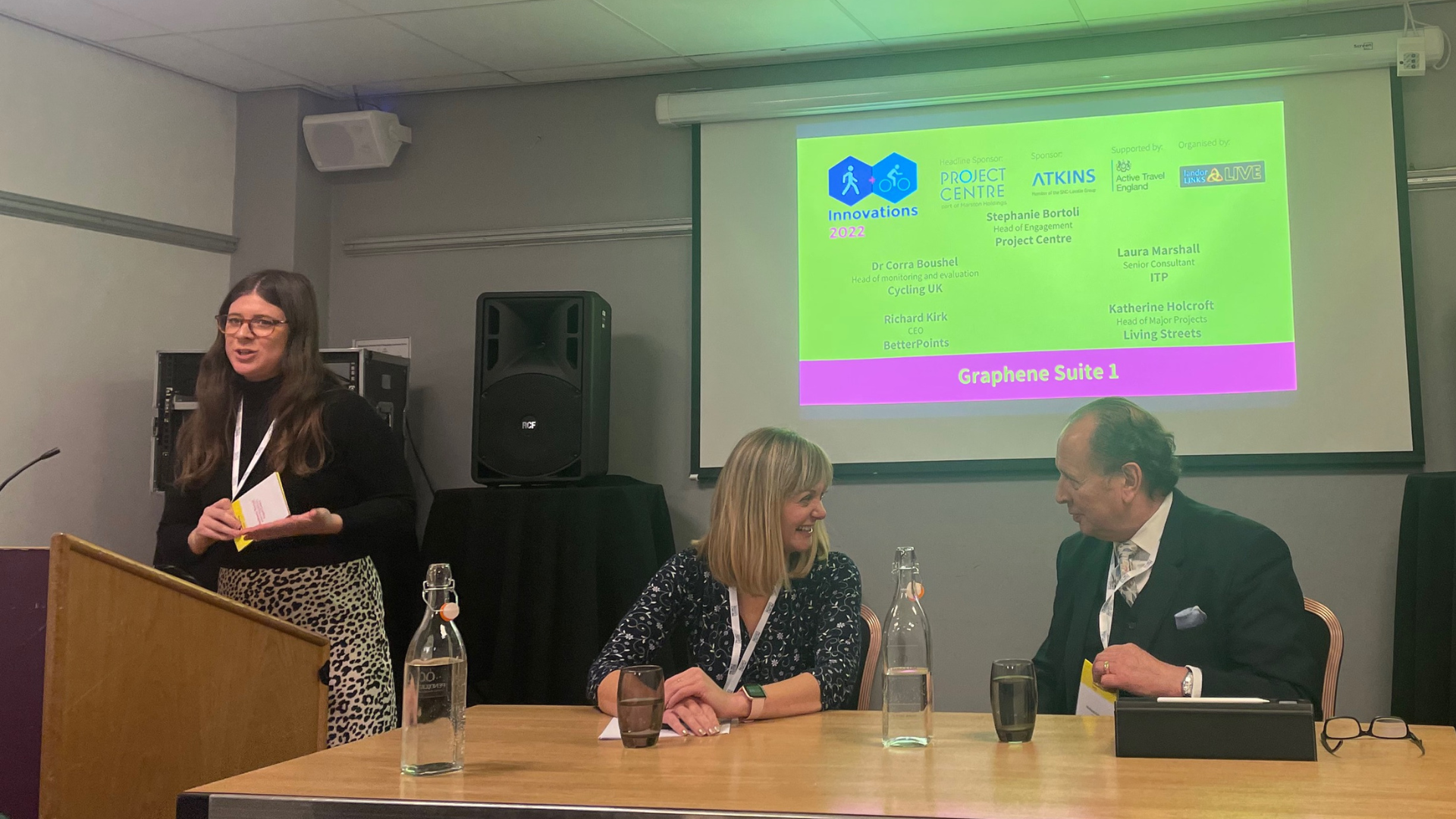Project Centre sponsored the Cycling and Walking Innovations Conference in Manchester, which was a fantastic opportunity to network and catch up on the latest news in active travel.
The conference covered some crucial elements to help us deliver innovative, cost-effective, and sustainable measures in the country.
Planning for active travel

Our Managing Director, Keith Hanshaw, chaired the “Planning for active travel” session. Keith set the example of how to plan an active travel scheme that will work for both the community and the environment.
The UK is reporting worsening levels of air pollution and emissions. King’s College London stated that up to 36,000 premature death a year can be attributed to air pollution. The panel was extremely interesting as the speakers presented different solutions to tackle the impact of pollutants. At Project Centre, in collaboration with Vortex, we monitor air quality to find the areas that need the most improvements and we work to drive positive behaviour changes.
Our multi-disciplinary team keeps constant communication with the community to note current issues and concerns across the boroughs. Our solutions are constantly reviewed and tailored according to the community and partners’ needs. Check out some of the work we did to plan and encourage active travel in Waltham Forest.
Keeping active travellers safe

The focus of this session was on making streets a better and safer environment for cyclists and pedestrians. Our Regional Director for South, Chris Harrison, discussed how to deliver a safer approach to road design, commencing from School Streets and children’s behaviour.
“A city that is designed for children is good for everyone” – Chris Harrison
Chris went through the importance of including children within the community’s engagement strategy, educating them to a different and sustainable mindset. But how can you engage with children and incorporate their ideas into the design process?

We developed this design for our Moreland Street project in Islington. It includes greening spaces, bright colours and rainbow ribbons to break the rhythm of the carriageways.
Some of the key elements here include scented pocket gardens, the installation of new planters, and seating spaces.
The engagement with children was essential to assess the most deprived areas and create changes to revitalise these. The design of our cycling and walking infrastructure followed these founding guidelines.
The client and the community had great feedback for our project. Ann Dwulit, Executive Head teacher at Moreland Primary School, commented:
“There is a calm and a sense of order on the street with families and the community taking advantage of the lovely seating. The children had the opportunity to be actively part of the consultation and understand why improving air quality and safety are so important. It was a delight when they saw the finished product.”
Ann Dwulit, Executive Head teacher at Moreland Primary School
Walking and pedestrian priority
Associate Director Tina Glover chaired this session, setting the example of how to change the carriageway to make cycling and walking a safer choice for everyone. Data analysis is essential to assess the existing situation and make changes that are suitable and measurable.
At Project Centre, we implement boxed junctions, zebra crossings, and road markings to make drivers and active travellers aware of any potential risk. We integrate the technical work with an immersive community engagement, assessing concerns and providing tailored solutions. Check out the work we did in Tower Hamlets.
Behavioural change and psychology

Head of Communication and Engagement, Stephanie Bortoli, chaired this session, speaking of how to reach the community through a diverse and inclusive communication strategy.
All the speakers in the session exposed interesting plans to make the community engage in active travel. From identifying schools and workplace challenges to offering adults and children bike training and bike giveaways. We aim to encourage a safer and healthier lifestyle for the community and the environment.
At Project Centre, behaviour changes and engagement are one of our priorities. We invite children to our events, enabling and encouraging them to walk or cycle to school. Read about our work for Lewisham School Streets. The communication strategy is then extended to the adults, to whom we offer online tools for consultation, surveys, letters, and face-to-face conversation to express questions and concerns. We tailor all our proposed solutions to make it work for the community and the environment.


